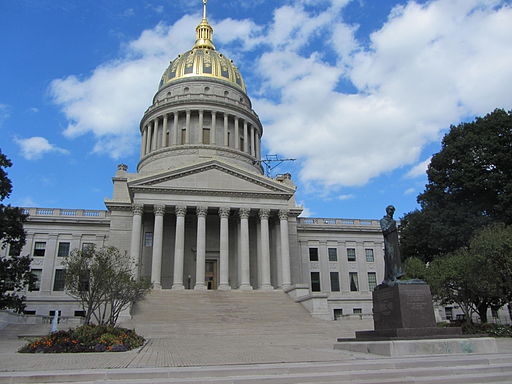On April 24, 2025, West Virginia Gov. Patrick Morrisey (R) signed SB 50, requiring all local municipal elections to be held concurrently with a regularly scheduled statewide primary or general election by 2032.
The Republican-sponsored bill passed the West Virginia Legislature with bipartisan support, including a unanimous vote in the West Virginia Senate.
Supporters of the bill said that it would reduce election costs and lead to higher turnout. Sen. Mike Stuart (R) said, “We’ve got municipalities where we’re having a fraction, a mere fraction of voters showing up to vote because they just have no idea there’s an election.” Del. Larry Kump (R) said, “Senate Bill 50 will eliminate the taxpayer burden of holding these special elections, but importantly, will also increase voter awareness and election turnout.”
Opponents of the change said that it could reduce attention on local candidates. Andy Lang, Mayor of Bridgeport, West Virginia, said, “I think that’s a case where a highly, highly publicized presidential election, like we had this last time, can take the complete focus away from your local candidates. … So I’m more for allowing us to continue to have our municipal elections whenever we want to.”
During debate on the bill, lawmakers considered an earlier deadline for municipalities to adopt uniform election dates, but testimony from the secretary of state’s office encouraged legislators to give towns and cities more time to conform to the changes. “The redistricting process is arduous and requires ample public notice, so local officials will benefit from the proposed extension of time for implementation,” the testimony said.
On-hundred and thirteen of West Virginia’s 232 municipalities were scheduled to hold elections in 2025, when there is no statewide election date.
Lawmakers in both parties and in states of all trifecta statuses have introduced legislation related to the topic of aligning elections this year. As of May 6, 2025, 51 bills in 22 states would align or study the alignment of at least some election dates.
In addition to West Virginia, legislation in four states has become law:
- In Arkansas, SB 353 eliminates the state’s May primary and moves it to March, when it normally holds its presidential preference primary.
- In Kansas, HB 2022 eliminates options for certain special elections and requires them to be held on the first Tuesday after the first Monday in March or on the same day as the general or primary elections.
- In South Dakota, HB 1130 requires municipal and school board elections be held on the date of the statewide primary in June or the date of the November general election. Previously, these elections occurred on the second Tuesday in April in even or odd years.
- In Virginia, HJR 443 establishes a joint legislative subcommittee to study the effects of moving some or all of Virginia's state or local elections to even-numbered years in order to coincide with the federal election cycle.



